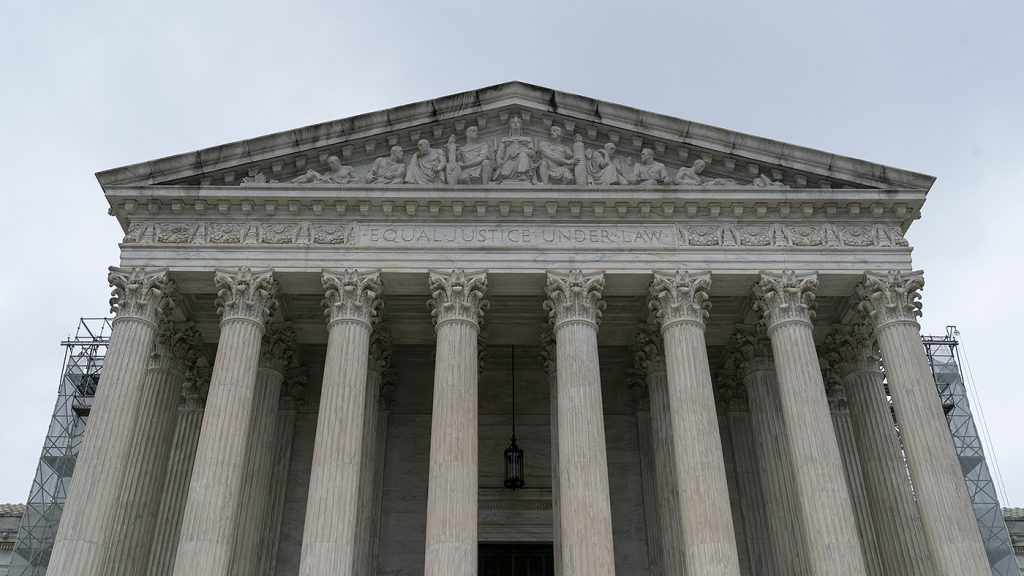The Supreme Court ruled Tuesday that a man’s challenge to his former placement on the No Fly List can move forward, finding the government failed to show his lawsuit is moot.
Yonas Fikre, a U.S. citizen who previously lived in Sudan, said his placement on the list was unlawful and sued the FBI.
The government later removed him from the list and indicated it was unlikely he would be added again. It then argued Fikre’s lawsuit was moot as a result and should be thrown out.
The government cautioned that not declaring lawsuits like Fikre’s moot at the beginning could require the government to reveal classified information. The Supreme Court rejected that claim, allowing Fikre’s case to move forward.
“Our judgment is provisional,” Justice Neil Gorsuch wrote in the court’s opinion.
“Just because the government has not yet demonstrated that Mr. Fikre’s case is moot does not mean it will never be able to do so,” the conservative justice continued. “This case comes to us in a preliminary posture, framed only by uncontested factual allegations and a brief statement. As the case progresses, the complaint’s allegations will be tested rather than taken as true, and different facts may emerge that may lead to a different conclusion.”
Fikre claims that he traveled to Sudan in late 2009 to develop an electronics business in his native East Africa. The FBI interrogated him while in Sudan, according to court documents, informing Fikre he was on the No Fly List and could be removed if he became an informant.
Fikre allegedly declined and moved to the United Arab Emirates, where he asserts he was then kidnapped and tortured for months by the country’s secret police at the FBI’s request. After leaving the United Arab Emirates, Fikre says he moved to Sweden, filed his lawsuit, and sought asylum.
After being denied asylum, Sweden reportedly flew Fikre back to Portland, Ore., on a private jet.
In 2016, the government informed Fikre he had been removed from the No Fly List and his lawsuit was moot, court records indicate. The district court agreed, but the 9th U.S. Circuit Court of Appeals reversed the decision, prompting the government to appeal to the Supreme Court.
The government does not generally disclose the full reasons for placing people on the list, and the Justice Department expressed concerns that allowing cases like Fikre’s to proceed would unnecessarily compel the government to reveal its sometimes-classified justifications.
“A case does not automatically become moot when a defendant suspends its challenged conduct and then proceeds to litigate for some specified period,” Gorsuch responded. “Nor can a defendant’s speculation about a plaintiff ’s actions compensate for a lack of certainty about its own. (For that matter, given what little we know at this stage in the proceedings, Mr. Fikre may have done none of the things the government presumes he has, perhaps wanting to but refraining for fear of being relisted.)”
Justice Samuel Alito, accompanied by fellow conservative Justice Brett Kavanaugh, wrote separately to clarify that the government does not necessarily have to make classified information available to Fikre to show his case is moot.
“Requiring the Government to reveal sensitive information about why they put or removed someone from the No-Fly List could weaken the Government’s important interests in airline safety and preventing terrorist attacks,” Alito wrote.
Lindsay Harrison and Annie Kastanek, who represented Fikre, praised the decision.
“We are glad to have assisted Mr. Fikre in achieving justice through this unanimous US Supreme Court decision,” they said in a statement. “Mr. Fikre was unconstitutionally put on the No Fly List and stuck overseas for four years, and today’s victory shows that the government can't avoid reviewing its national security policies by selectively dismissing cases.”
Updated 11:24 a.m.









